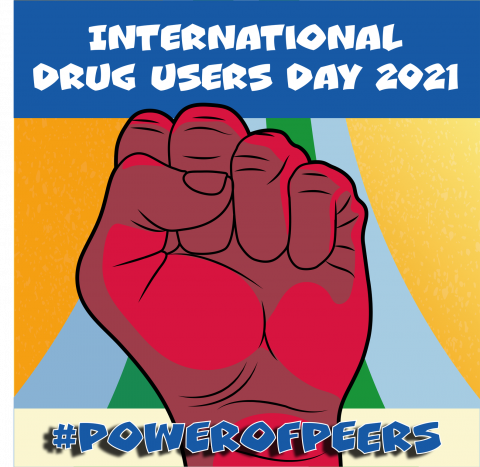1 November is International Drug Users’ Day, when the global community of people who use drugs comes together to celebrate its history and affirm the rights of people who use drugs. The International Network of People who Use Drugs (INPUD) marks this day with a celebration of its diverse, vibrant communities’ accomplishments, while also acknowledging their work is more critical than ever.
On International Drug Users’ Day, UNAIDS is calling for urgent action against the criminalization of people who use drugs, for the redress of criminalization’s negative effects on HIV, viral hepatitis and other health issues, for the respect of human rights and for more funding for community-led harm reduction programmes.
People who use and inject drugs are among the groups at highest risk of acquiring HIV but remain marginalized and often blocked from accessing health and social services. In 2020, 9% of all new HIV infections were among people who inject drugs. Outside of sub-Saharan Africa this rises to 20%. Although women represent less than 30% of the number of people who use drugs, women who use drugs are more likely to be living with HIV than their male counterparts. Less than 1% of people who inject drugs live in countries with the United Nations-recommended levels of coverage of needles, syringes and opioid substitution therapy, and the funding gap for harm reduction in low- and middle-income countries sits at a dismal 95%.
Even where harm reduction services are available, they are not necessarily accessible. Punitive drug control laws, policies and law enforcement practices have been shown to be among the largest obstacles to health care in many countries. Criminalization of drug use and harsh punishments (such as incarceration, high fines or removal of children from their parents) discourage the uptake of HIV services, drive people underground and lead to unsafe injecting practices, and increase the risk of overdose. Women who use drugs face higher rates of conviction and incarceration than men who use drugs, contributing to the increased levels of stigma and discrimination they face in health-care settings. In effect, criminalization of drug use and possession for personal use significantly and negatively impact the realization of the right to health.

